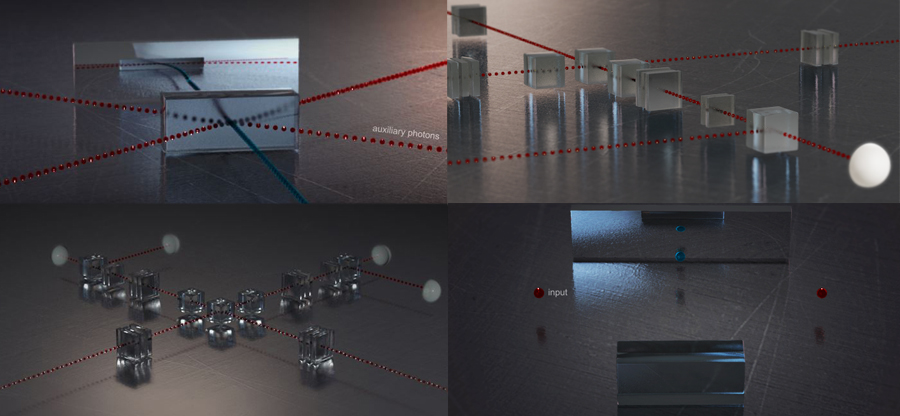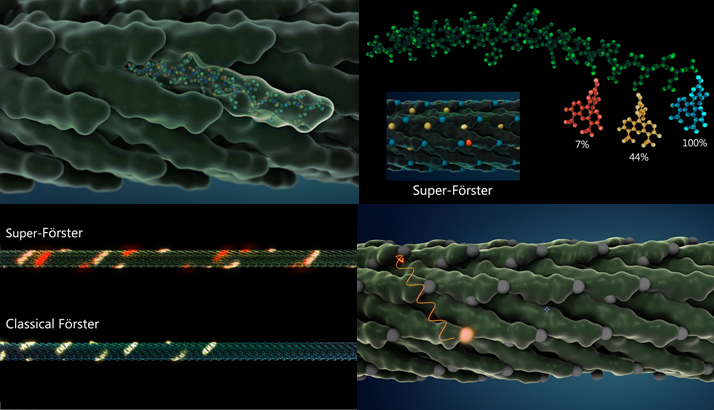
Scientific Animator, Freelancer
Career Profile
Please introduce yourself (what is your current training/educational status and/or where do you work?) and share with us how you decided to get into scientific visualization.
I am a freelance scientific animator making visualizations that explain the work of academics and medical professionals. While working on an undergraduate degree in chemistry, I started experimenting with animation software like Maya. The power of this program was vast – backed by python, any kind of data set could be imported, and it seemed to me there was so much that had not yet been tried. My goals then and now have been to aid researchers with their visualization tasks and to reveal the mechanisms of nature through animated movies.
What do you like the most about this field?
I love the diverse exposure to many fields of science. I am also a craftsman by nature and greatly enjoy the daily work of an animator, the attention to detail, and the close study of motion.
How and where did you acquire your current skillset in scientific visualization? Was it all via a graduate or other program or are you self taught? If so, did you use any particular online resources to help with your training?
My foundation in science comes from a bachelor’s degree in Chemistry at Harvard. My animation knowledge is mostly self-taught, which means an extraordinary amount of Googling, reading documentation, and a daily practice studying the visual arts. To jump start my studies, I took classes at Gnomon School for VFX in Los Angeles, and I audited a course on molecular visualization at Harvard Medical School taught by Gael Mcgill. I also studied painting. Online, I recommend following your favorite artists, as nowadays they will sometimes post lectures online or direct followers to publicly available resources.

What do you consider some of the biggest barriers to entering the field? Are they technical, training, scientific, professional (availability of jobs or projects)?
This is a young, rapidly expanding field. The barriers will be different for everyone based on background. The relatively undefined training path in this career can be daunting, but it is also liberating to be in a field that does not yet have so many rules.
Which practitioners (or what visualizations) have been most inspirational to you?
The German biologist Ernst Haeckel’s exquisitely detailed illustrations of life forms also tell the story of evolutionary change over time, and are imaginative and beautiful. Irving Geis’s early illustrations of molecular structures are inspirational to look at in that they were created before the age of computers – wonderful! Edward Tufte is incredibly eloquent on the topic of visual clarity. Modern science fiction animators such as Ash Thorp and Bradley Munkowitz have helped me imagine how I might convey topics in physics that are not visual or tangible.
Which conferences would you recommend to those interested in this field and why? What particular insights or benefits did you get out of attending this (these) conferences?
SIGGRAPH stands out as a conference where you can get a bird’s eye view of computer graphics from its most basic to its most applied, with plenty of applications to our field. On a more artful and public-oriented note, the Imagine Science film festivals gather scientists, filmmakers, and artists from around the globe interested in communicating science visually. I’ve always come out of this festival with fresh ideas.
If there was one resource, tool or conference that you could wish for to facilitate your work, what would it be?
I expect virtual reality to be the natural progression for scientific visualization, and I’d love to see a conference on scientific applications of virtual reality. 2016 will be a year where we see the introduction and availability of numerous VR viewing and input devices. VR development tools will continue to improve. This hardware and software will dramatically expand the applicability and utility of scientific visualization.
What other advice would you offer those interested in either a professional or full-time academic career in scientific visualization?
This field merges expertise from a variety of diverse backgrounds. Few people will come into it with all the necessary components. Be prepared to constantly be learning and expanding your skill set. If you are coming from a science background, make the study of visual art a daily practice, and the way your eye changes over the years will surprise you. Find mentors in both fields.
Please comment briefly on the samples/links that you have submitted for this profile… why in particular are you proud of these and what do you hope viewers will notice and get from seeing them?
For the Walther Lab, at the U. of Vienna, I re-imagined laser light as a stream of qubits – individual bits of quantum information often conveyed as spheres containing arrows inside. The animation demonstrates how physicists harness the quantum behavior of light to solve linear equations. For the Biomolecular Materials Group at MIT, I visualized energy transfer along viruses that had been genetically engineered to act as a template for the experiment.

Where do you think the field scientific visualization is ‘going’? Do you perceive any trends in its evolution or are there certain directions that you would like to see implemented?
As virtual reality becomes more ubiquitous, scientific visualization will follow. Interactive 3D learning using virtual reality and augmented reality will become the new standard in education. Other areas such as scientific communication, advertising and entertainment will develop in parallel.
And then lets end with a simple question… What is your ‘10 year plan’ in terms of what you hope to accomplish in scientific visualization?
In 10 years I will be sitting on my holodeck, discussing shader algorithms with Siri the 23rd my newest virtual assistant. I will be working on a Department of Energy project aimed at explaining to 1st grade children how their family’s home fusion generator makes electricity out of helium balloons and tap water.
Personal Website: www.laurenaleza.com/
